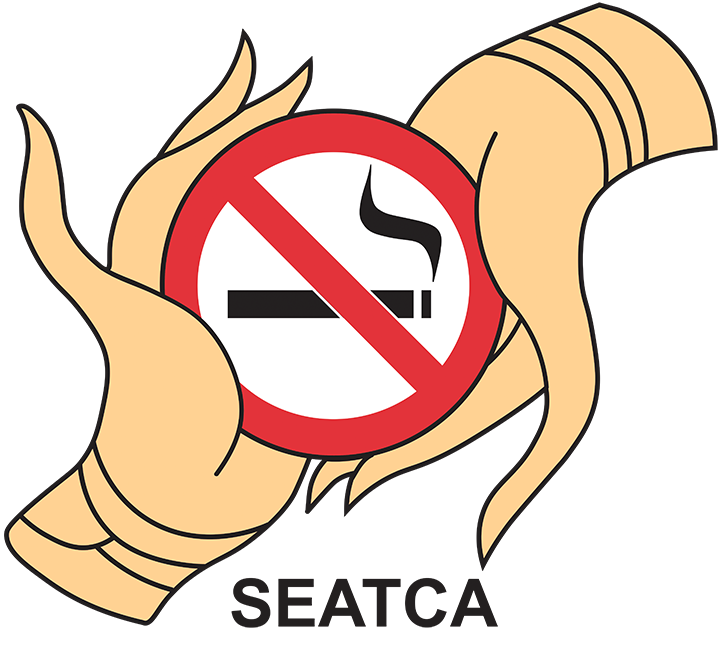
Facing the Tobacco Challenge in ASEAN
Tobacco is the leading cause of preventable deaths in Southeast Asia, and urgent action is needed. SEATCA provides vital data on tobacco's impact and country’s progress and challenges to advance tobacco control policies, urging policymakers and communities to strive for a tobacco-free ASEAN.
The Problem
A snapshot of key tobacco industry players, their influence, and activities in the ASEAN region and beyond.

Tobacco's Devastating Impact on ASEAN
Tobacco continues to cause serious harm across ASEAN, affecting millions each year. The region faces high smoking rates, substantial economic losses, and overburdened healthcare systems. Urgent and coordinated action is crucial to address this growing public health crisis.
Key Highlights for Impact
A snapshot of tobacco’s impact in ASEAN highlights the urgent need for stronger action, supported by key data on tobacco and e-cigarette use among adults and youths, healthcare costs, annual tobacco-related deaths, and environmental harms.

Addressing Tobacco and Nicotine Addition in ASEAN
ASEAN countries are progressing at different levels in adopting strong tobacco control measures—such as tax hikes, smoke-free laws, health warnings, standardized packaging, and ad bans—to reduce tobacco use and protect public health.
Key Highlights for Solution
Effective policies across ASEAN, from tax hikes to advertising bans, are helping reduce tobacco use and protect public health.
A Closer Look at Tobacco Control Milestones in ASEAN Countries
Brunei
19.9% of adults, with higher rates among men (36.3%).
62% tobacco tax burden as percentage of cigarette retail price.
100% smoke-free laws implemented in all indoor public places.
75% pictorial health warning covering principal areas of cigarette pack.

Cambodia
14.6% of adults, with higher rates among men (28.4%).
25% - 31.1% tobacco tax burden as percentage of cigarette retail price.
100% smoke-free laws implemented in most indoor public places except in airport.
55% pictorial health warning covering principal areas of cigarette pack.

Indonesia
29.7% of adults, with higher rates among men.
48.9% - 53.8% tobacco tax burden as percentage of cigarette retail price.
100% smoke-free laws implemented in some indoor public places.
40% pictorial health warning covering principal areas of cigarette pack.

Lao PDR
27.9% of adults, with higher rates among men (50.8%).
18.8% tobacco tax burden as percentage of cigarette retail price.
100% smoke-free laws implemented in all indoor public places.
Standardized packaging and 75% pictorial health warning covering principal areas of cigarette pack.

Malaysia
19% of adults, with higher rates among men (35.7%).
58.6% tobacco tax burden as percentage of cigarette retail price.
100% smoke-free laws implemented in most indoor public places except in hotel, airport, and bar/pub.
50% front; 60% back pictorial health warning of cigarette pack.

Myanmar
44.1% of adults, with higher rates among men (68.7%).
30 - 60% tobacco tax burden as percentage of cigarette retail price.
100% smoke-free laws implemented in most indoor public places except in public trains and public water transportation.
Standardized packaging and 75% pictorial health warning covering principal areas of cigarette pack.

Philippines
19.5% of adults, with higher rates among men (34.7%).
50.6% tobacco tax burden as percentage of cigarette retail price.
100% smoke-free laws implemented in some indoor public places.
50% pictorial health warning covering principal areas of cigarette pack.

Singapore
9.2% of adults, with higher rates among men (16%).
70.7% tobacco tax burden as percentage of cigarette retail price.
100% smoke-free laws implemented in some indoor public places.
Standardized packaging and 75% pictorial health warning covering principal areas of cigarette pack.

Thailand
17.4% of adults, with higher rates among men (34.7%).
81.3% tobacco tax burden as percentage of cigarette retail price.
100% smoke-free laws implemented in all indoor public places.
Standardized packaging and 85% pictorial health warning covering principal areas of cigarette pack.

Vietnam
20.8% of adults, with higher rates among men (41.1%).
34.3% tobacco tax burden as percentage of cigarette retail price.
100% smoke-free laws implemented in some indoor public places.
50% pictorial health warning covering principal areas of cigarette pack.

Quick Facts
Loading quick fact...
Support Tobacco Control in ASEAN
Your donation helps strengthen tobacco control efforts across Southeast Asia,
funding critical programs that save





